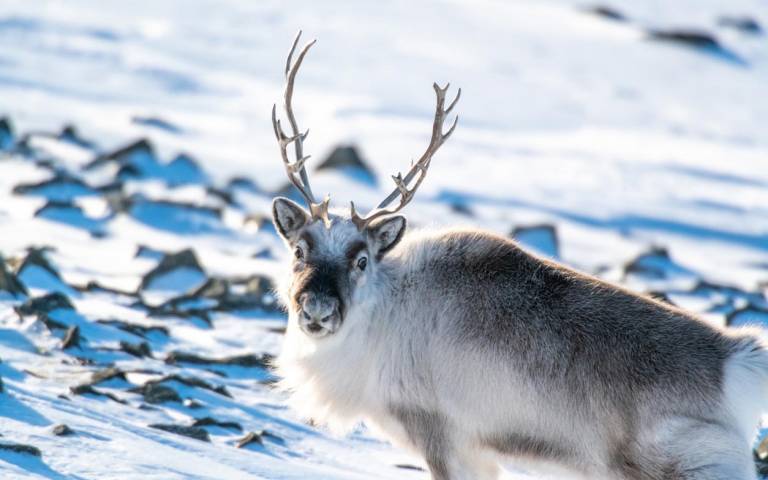Arctic rain may soon be more common than snowfall
3 December 2021
More rain than snow will fall in the Arctic and this transition will occur decades earlier than previously predicted, a new study involving UCL researchers has found.

Projections from the latest models, published by an international team of researchers in the journal Nature Communications, show a steep increase in the rate and range of precipitation expected to fall in the Arctic, and that most of these future events will be rain. This shift is occurring due to rapid warming, sea ice loss, and poleward heat transport in the Arctic.
This transition to a rain-dominated era in the Arctic is forecasted to commence at different times depending on the season and region. In autumn, for instance, these new models predict the shift to occur between 2050 to 2080, whereas the old models predicted this to occur between 2070 to 2090.
Co-author Professor Julienne Stroeve (UCL Earth Sciences) said: “As the Arctic continues to warm in response to atmospheric greenhouse gases it is not surprising that the precipitation will start to transition from snow to rain. The worry is that it may happen sooner than we expected, with wide-ranging consequences.”
The paper, “New climate models reveal faster and larger increases in Arctic precipitation than previously projected,” warns that reduced snow cover will further exacerbate Arctic and global warming through albedo feedbacks, increased winter CO2 fluxes, methane releases from soil, and thawing permafrost.
Lead researcher Dr Michelle McCrystall, of the University of Manitoba, said: “There are huge ramifications of these changes, which we note in the paper, such as a reduction of snow cover, increased permafrost melt, more rain-on-snow events, and greater flooding events from increased river discharge, all of which have implications on wildlife populations and human livelihoods.”
The precipitation change will also affect soil moisture and groundwater, and the underground fungal networks that supports all aboveground flora.
And more rain-on-snow events may bring catastrophic starvation events to wild caribou, reindeer, and muskoxen populations: the thick ice crusts which form when the air again cools can be impenetrable, inhibiting the animals from accessing forage.
But migratory bird populations in the Arctic are expected to do well with these warmer and wetter conditions. “The issue facing us today is that the Arctic is changing so fast that Arctic wildlife might not be able to adapt,” said Professor Mark Serreze, co-author of the study and director of the National Snow and Ice Data Center in the US. “It’s not just a problem for the reindeer, caribou and musk ox, but for the people of the North that depend on them as well.”
The research team - which includes members from the University of Manitoba, University of Colorado Boulder, University of Lapland, and the University of Exeter, as well as UCL - note that if we can remain under 1.5C of global warming, then some of these projected changes (namely the transition to a rainfall dominated precipitation) may not occur in some regions of the Arctic.
But if we continue on the current trajectory, which given current global policies means that we could reach 3C global warming by the end of the century, that this transition will likely occur. Co-author Professor James Screen, of the University of Exeter, said: “The new models couldn’t be clearer that unless global warming is stopped, the future Arctic will be wetter; once-frozen seas will be open water, rain will replace snow.”
The research was supported by the Canada Research Chairs Program, the National Science Foundation, the European Commission Research and Innovation (CHARTER) and from the UK’s Natural Environment Research Council.
Links
- Research paper in Nature Communications
- Professor Julienne Stroeve’s academic profile
- UCL Earth Sciences
- UCL Mathematical & Physical Sciences
Image
- Reindeer in Svalbard. More rain-on-snow events may lead to the starvation of some wild caribou, reindeer, and muskoxen. Credit: iStock
Media contact
Mark Greaves
T: +44 (0)7990 675947
E: m.greaves [at] ucl.ac.uk
 Close
Close

